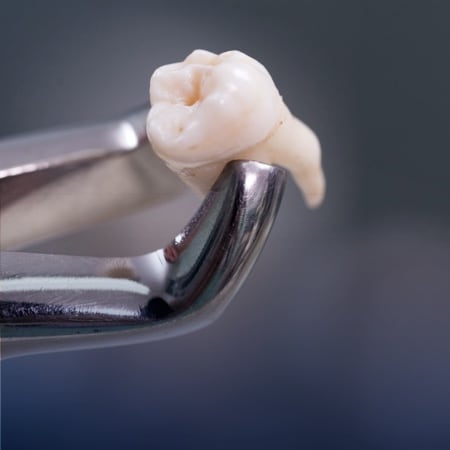At CVOS Oral Surgery, our patients are referred to us by their family dentist, orthodontist, or other healthcare professionals for a variety of reasons.
Whether your reason is a straight-forward, same-day wisdom teeth extraction or a more complicated jaw surgery, two questions are likely on your mind:
“How much will it hurt?” and “how long will it take to recover?”
While our highly skilled surgeons will use every ounce of their expertise to ensure you recover as comfortably as possible, the answer to both questions lies in your commitment to following 5 simple post-op instructions.
There Is No Magic Pill for Recovery
When it comes to recovering from any sort of surgical procedure, there is no magic pill.
There is no mystical elixir you can drink that will cause the bone and tissue of your body to heal faster.
There is, however, is a lot of people waiting in the wings ready to offer you their advice on what you should do to expedite recovery…because their cousin’s brother-in-law’s best friend tried it and it worked for them.

While you must use your own judgment in discerning which pieces of advice to accept or social media remedies to try, your absolute best bet for helping your body to recover continues to lie with the instructions provided by CVOS’s experienced team of nurses.
If you want to try out the strange foul-smelling home remedy your neighbour swears will help, that is up to you (although we strongly recommend contacting us or another qualified healthcare provider before doing so), if you truly want to increase the likelihood of experiencing an ideal recovery, you need to do these 5 things.
Stay Frosty
Medical professionals have long recommended the use of ice to aid post-surgical recovery.
The pain you may experience following your procedures is the result of inflammation and swelling in the bone or tissue that was affected. This is your body’s natural reaction to your surgery.
Consistently applying ice (whether in the form of ice packs or frozen vegetables) has proven to be a highly effective way to reduce this inflammation and reduce pain. It also aids in the flow of oxygen-rich blood to the affected tissue…something your body needs to heal.
So, following your surgery, make sure you consistently “chill out” by applying ice to the outside of your face for at least 3 days.
Elevate
As already mentioned, experiencing a more comfortable recovery means taking steps to minimize inflammation and swelling.
The advanced surgical techniques used by CVOS’s surgeons are meant to cause as little trauma to the affected area as possible. Yet, every surgery regardless of the technique used is viewed by your body as an attack. Its natural defence is to create inflammation.

This inflammation causes the surrounding tissue to swell, pressing on the nerves and causing the discomfort you feel. The greater the inflammation and swelling, the greater the compression on the nerves and the greater the pain.
So, to minimize swelling in your jaw area, it is strongly recommended that you keep your head elevated for the first few days following your procedure.
Eat Well
This is one easiest and, yet, least followed ways to improve your overall post-operative recovery.
Icing and elevation both act directly to reduce inflammation and pain. However, the benefit of a post-op diet chocked full of essential nutrients is less obvious.
Simply put, the nutrients you eat are critical to the cell regeneration process, which is what we call “healing”. Studies have proved that proper post-op nutrition can reduce overall recovery time, lower your risk of infection (or other complications) and can even help in reducing inflammation.
As the saying goes, we are what we eat. If you eat more of the things that your body needs to aid in its recovery, it will heal better.
Your Post-Op Recovery Shouldn’t “Suck”
After your surgery, you will want to avoid drinking your favourite Starbucks Frappuccino or any other drink requiring the use of a straw for at least a week. Similarly, if you are a smoker, it may be a great time to quit because cigarettes, like straws, require suction.
What’s wrong with suction?

In addition to the fact that it causes the muscles of the face to contract which could be painful, you can actually suck out the blog clot that forms following your surgery leading to something called “dry socket”.
Dry socket can be extremely painful.
So, let yourself heal for a week and then you can go back to slurping up your favourite chilled caffeinated beverage.
Take It Easy – Healing Takes Time
If you were admitted to the hospital for knee surgery, you would likely go home, put your leg up, and rest.
You wouldn’t be walking the dog or using the stairs at work to reach your office on the 23rd floor.
Following your oral surgery, the same rules should apply.
The affected area needs rest. Eating and drinking are fine but take care when choosing what you are eating and drinking. You wouldn’t want your first post-op meal to result in greater inflammation and pain.
So, following your surgery, rest your mouth for the first 24 hours. Do not spit, swish fluids, rinse, clean your teeth or smoke during this time.
Your Recovery Is Up to You
If it were up to us, we would ensure all our patients experienced a fast and pain-free recovery. Unfortunately, though, this isn’t up to us.
Many different factors will influence the rate and ease of your recovery process. Fortunately, by following these 5 tips with enthusiasm, you will be going a long way towards helping to minimize the duration of your recovery and the amount of discomfort you experience.
Your recovery is up to you.
Note: If, during your recovery, you experiencing significant pain or conditions beyond what you were told to expect by your surgeon and/or nurses, please call our offices immediately.








